Microsoft is killing off HoloLens 2 with no successor planned
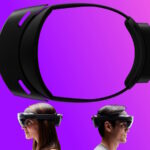
Anyone who wants a HoloLens 2 will need to act fast if they are to get their hands on one. Microsoft has confirmed that production of the augmented reality headset has ended in what will be seen by many as something of a mercy killing.
After eight years and two models, Microsoft has seemingly given up on HoloLens. Once current stocks run out, the second-hand market will be the only way to get hold of one, and there are no plans for a follow-up device.
Windows Mixed Reality is the latest for the chop as Microsoft ditches VR in favor of AI
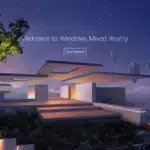
In a move that will -- or at least should -- surprise very few people, Microsoft has announced that it is dropping Windows Mixed Reality. It will be removed from a future release of Windows.
Having already apparently given up on its HoloLens range, Microsoft appears to have come to the same conclusion that many reached some time ago: VR and augmented reality were phases that people have simply lost interest in. With the company now heavily invested in AI, it will no doubt be hoping that this is something that remains popular for rather longer.
Physical meets digital -- the changing world of augmented reality [Q&A]

The physical and digital worlds continue to intertwine in new and exciting ways, and more precise mapping of the real world opens up unique opportunities for brands to drive more traffic and engagement to physical locations.
We spoke to Rypplzz CEO Josh Pendrick about why he believes augmented reality is a sector that's ripe for disruption.
Will Apple's AR headset win over consumers?

Remote work isn't going anywhere. The number of major companies announcing plans to allow their employees to work from home into the future continues to grow every week as Covid-19 prolongs the time away from the office and remote employees realize an improved work/life balance.
A switch to permanent remote work will also mean changes to the technology we use to work. Existing solutions were utilized early in the pandemic when there weren’t any other options, but as the projected time at home continued to increase it was clear that purpose-built solutions were needed to make an entirely remote office function properly.
Microsoft will release HoloLens 2 in September

Microsoft is due to launch the second edition of its augmented reality headset next month. HoloLens 2 will go on sale in September, according to the executive vice president of the company's artificial intelligence and research group, Harry Shum.
Shum was speaking at the World Artificial Intelligence Conference in Shanghai when he made the revelation, finally bringing to an end speculation about when the device will see the light of day.
Facebook Messenger update adds Boomerang looping videos, new Selfie mode and AR stickers
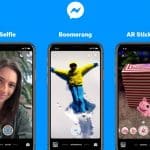
Facebook is borrowing more features from Instagram and will be pushing a Facebook Messenger update to users starting today. The camera-focused update sees the arrival of not only a new selfie mode, but also support for Boomerang looping videos and AR stickers.
The update is heavily inspired by Instagram, to the point that the new Selfie mode that automatically blurs backgrounds is practically identical to Instagram's Portrait mode.
Microsoft wins $480 million military AR contract -- US Army could purchase 100,000 HoloLens headsets
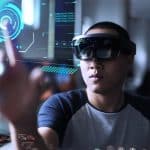
The US Army has revealed that Microsoft has won a contract worth $480 million to supply prototype augmented reality equipment. The deal could see the Army purchasing 100,000 HoloLens headsets from the company.
Microsoft says the deal is an extension of its existing relationship with the Department of Defense. The company has previously faced criticism from its employees for bidding for military contracts, but it responded by saying it believed that those defending the US should have access to the best technology. Winning this latest contract -- the aim of which is to "increase lethality by enhancing the ability to detect, decide and engage before the enemy" -- is likely to face similar criticism.
The industries that can expect to see the most from XR in the next 4 years

For many years, Virtual Reality was seen as just a futuristic concept, but in 2010, the prototype of the Oculus Rift was released, before eventually being rolled out for general consumption in 2012. Since then, other companies have followed suit, including Samsung, Sony (PlayStation) and HTC (Vive). The use of Augmented Reality has also started to rise, both in the gaming world and in many other sectors. Both technologies are now being referred to as Extended Reality (XR), and there are huge plans afoot to develop them for a range of industries.
Here are the industries that will be utilizing XR technology the most in the next four years:
Workplace Augmented Reality: When will we see more enterprise adoption of AR?

First, let’s clarify the difference between Augmented Reality (AR) and Virtual Reality (VR). Virtual Reality (VR) blocks out the real world and immerses the user in a digital experience. Augmented Reality (AR) adds a layer of interactive digital elements on top of the real world. Or in simpler terms, AR can be defined as a technology which overlays a computer-generated image on a user’s view of the real world. The question is: when will we begin to see more Enterprise adoption of AR?
Companies are eager to jump on the AR bandwagon but are still unclear how to best use AR to drive sales around their product, improve efficiencies for their operations. Additional unknowns include how much it will cost to enhance the B2C/B2B experience and when companies could expect to see a return on their investment.
Toshiba unveils new smart glasses powered by a portable Windows 10 Pro PC
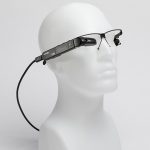
Google Glass teased an interesting future, but failed to deliver on its promise. Today, Toshiba picks up where Glass left off, with a pair of Augmented Reality (AR) glasses powered by a mini Windows 10 PC.
The glasses link together a dynaEdge AR100 Head Mounted Display (HMD) with a dynaEdge DE-100 Mobile Mini PC, which is essentially a handheld, battery-powered Windows 10 system.
Google launches Mobile Real-time Video Segmentation as limited beta (AI green screen to you and I)

Google is testing a new AI green screen tool for YouTube called Mobile Real-time Video Segmentation. We've become used to every chat tool worth its salt offering AR overlays and masks, but this technology makes it possible to change backgrounds -- in real time.
The technique makes use of neural networks to determine which parts of a scene are foreground to be left alone and which are background to be replaced. No special equipment is needed, and it has the potential to be used for serious videos as well as the more frivolous things masks tend to be used for at the moment.
How AR will impact our daily lives in 2018

Don’t know how to change a tire when you desperately need to? No problem. What if all you needed was a set of glasses and an expert technician would virtually come to wherever you are and walk you through the necessary steps? That same set of glasses can help train doctors and CIA agents in environments deemed dangerous in the real world. It could teach drone pilots how to navigate surroundings that aren’t so practical. It could take you and your family on a trip to the Louvre Museum without you ever setting foot in France.
This is the power of Augmented Reality (AR), an industry that’s projected to reach $50 billion by 2021 and $7 trillion by 2027.
Magic Leap unveils its long-awaited augmented reality system
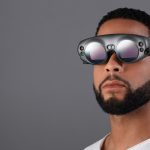
Magic Leap is a secretive company that has received a lot of coverage in the media, mainly due to the amount of funding it’s received, including a sizeable investment from Google.
The firm has been working on augmented/mixed reality for years now, but so far without a physical product to show for it. Today that finally changes, as the company takes the wraps off the Magic Leap One: Creator Edition.
Google launches Poly, a 3D object and scene library for AR and VR creators

Google has today unveiled a new library for virtual and augmented reality creators. Poly is home to all manner of 3D objects and scenes that can be dropped into apps and games.
At the moment Google says there are "thousands" of free models available to download, but the company will be hoping for this to expand massively. Poly is integrated with Tilt Brush and Blocks, and has been designed with a range of VR headsets and phone-based AR systems in mind.
Microsoft announces Samsung HMD Odyssey Windows Mixed Reality headset, acquires AltspaceVR
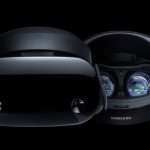
At a Windows Mixed Reality event in New York City, Microsoft and Samsung joined forces to reveal the latest addition to the range of Windows Mixed Reality headsets. Samsung's offering seems to be rather more impressive than others that have been announced.
The Samsung HMD Odyssey offers a slightly higher resolution and wider field of view than other headsets. It also features integrated headphones and can be adjusted to suit varying eye gaps. Microsoft also announced that it has acquired virtual reality startup AltspaceVR.
© 1998-2024 BetaNews, Inc. All Rights Reserved. Privacy Policy - Cookie Policy.